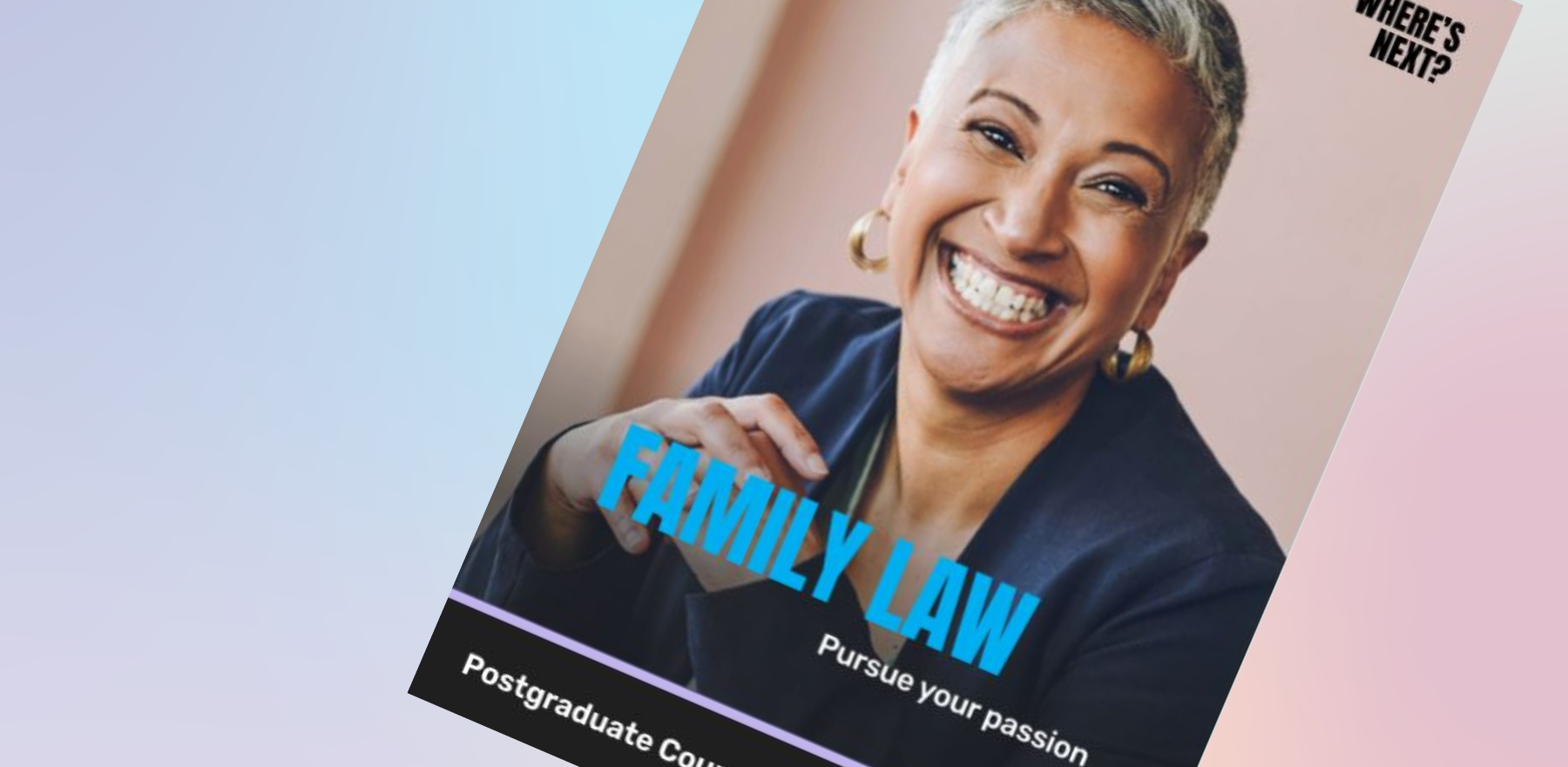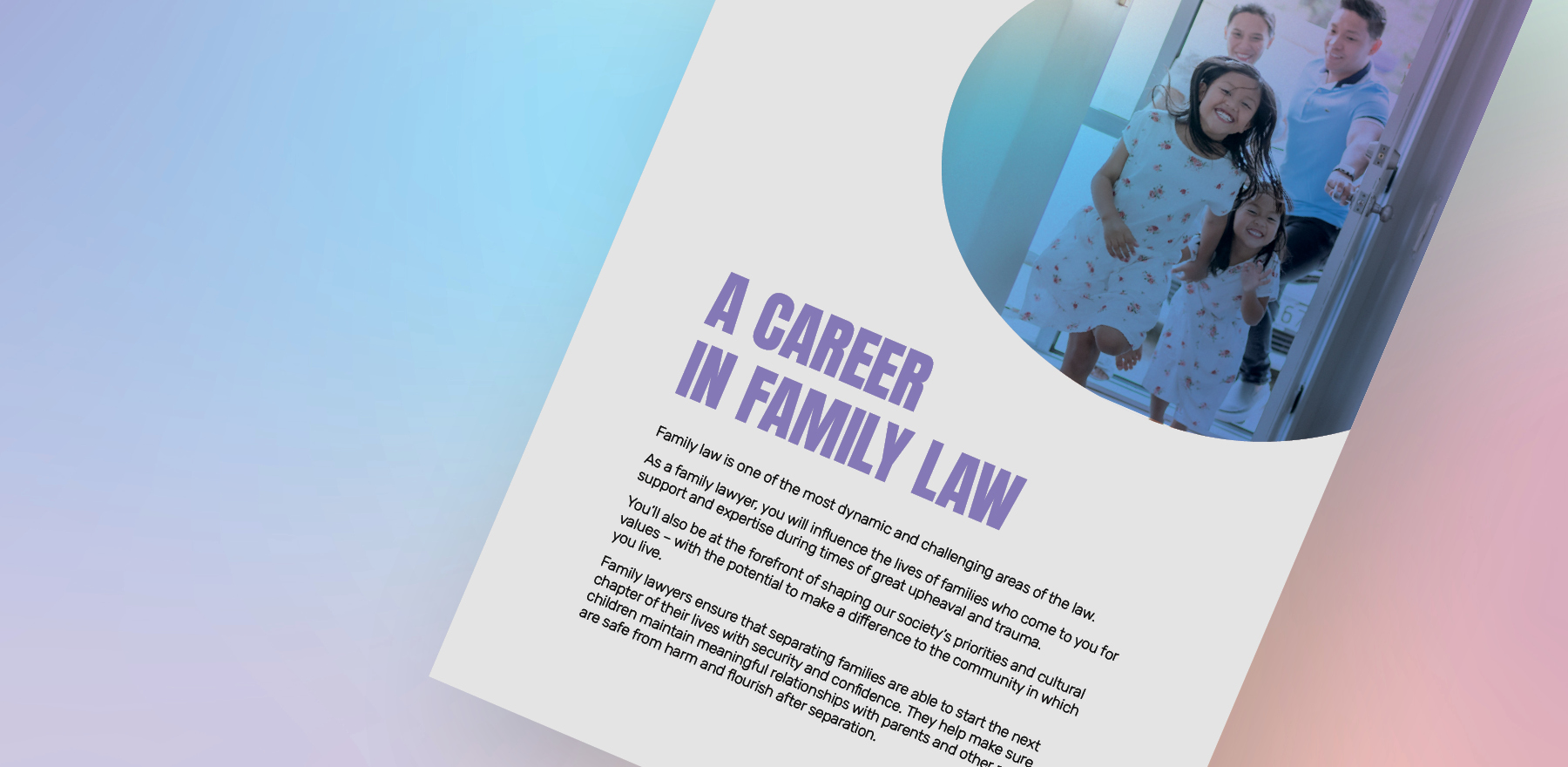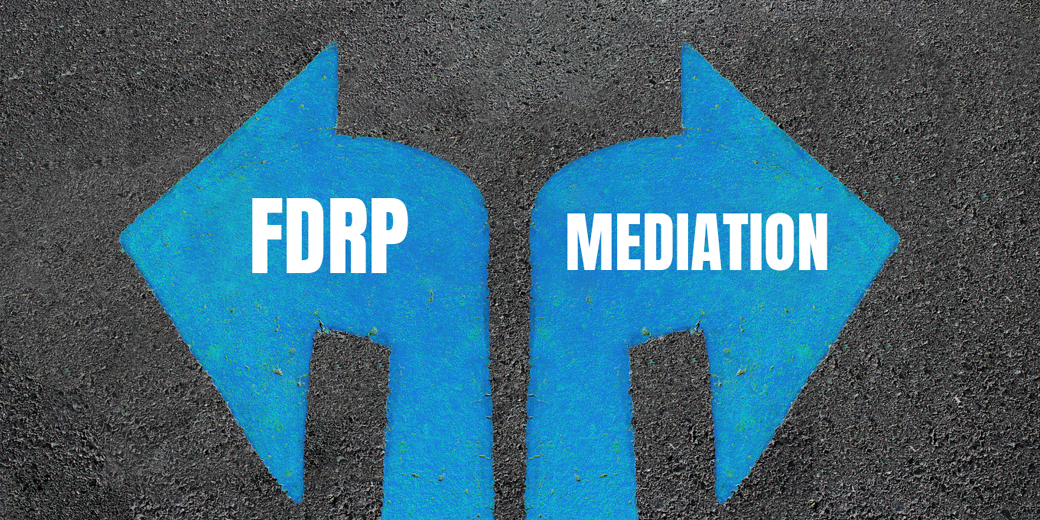A POSTGRADUATE QUALIFICATION GIVES YOU AN EDGE
The College of Law can help you expand on what you already know and acquire new knowledge while providing you with opportunities to hone your skills in a practice area, so that you stand out from the competition.
Open up new career pathways by studying a Graduate Certificate, Graduate Diploma or Master of Laws program. One that’s reality-based, balanced and world-renowned, so you can become the best version of yourself for your client, practice and community.
This is your chance to build career prospects, earn industry recognition, and boost your earning potential.
Curious about where your skills could take you next? Scroll down to explore the variety of practice areas, detailed course subjects, and potential awards waiting for you. Find your perfect fit and tailor your education to your career ambitions.
Intake 2, Starts 12 May 2025
PROGRAM OPTIONS - FAMILY LAW
Graduate Diploma of Applied Law (Family Law)
4
3 core subjects (FLP1, FLP2, FLP3) and 1 FLP elective subject
A recognised law degree (LLB, JD, or equivalent)
1 year part-time
Master of Laws (Applied Law) majoring in Family Law
8
3 FLP subjects, 4 elective subjects OR a second major and the Capstone Project in Family Law
A recognised law degree (LLB, JD, or equivalent)
2 years part-time
Master of Applied Law (Family Law)
8
4 core subjects (FLP1, FLP2, FLP3, FLP11 or FLP12), 3 elective FLP subjects and the Capstone Project in Family Law
A recognised law degree (LLB, JD, or equivalent)
2 years part-time
START WITH A GRADUATE DIPLOMA
If you decide later to progress towards a Masters, you’ll receive credit towards that award.
FAMILY LAW SUBJECTS
FLP00 - Capstone Project (Family Law)
Intake 2, 4TOPICS
THE SUBJECT HAS FOUR COMPONENTS
- Four short answer questions
- Two legal writing samples
- Oral communication (e.g. client interview) assessment held through online conferencing
- Reflective analysis
FLP1 - Foundations of Family Law Practice
Intake 1, 2, 3, 4TOPICS
- Introduction to family law
- Who is a family and who is a parent?
- Shared parental responsibility and legislative pathways
- Statutory considerations to determine the best interests of the child
- Child abuse and family violence
- Relocation and recovery of children
- Variation and enforcement of parenting orders
- Ethical and professional responsibility issues in children's cases
- Divorce, nullity and validity of marriages
FLP2 - Property, Maintenance and Child Support
Intake 2, 4TOPICS
- Jurisdictional issues and spouse maintenance
- Ethical issues, professional responsibilities and duties when acting for a party in family law financial proceedings
- The four step process: introduction and step 1
- The four step process: steps 2, 3 and 4
- Conciliation conference, private mediation and costs in family law proceedings
- Superannuation splitting, and tax, revenue and valuation issues
- Evidence and child support
- Documenting a settlement of a financial matter, and agreement about child support
FLP3 - Conducting Family Law Matters
Intake 1, 3TOPICS
- Conducting first conference, compulsory mediation and pre-action procedures
- Preparing for hearing
- Commencing proceedings and interim proceedings
- Court events and documents
- Division 12A proceedings and financial proceedings
- Preparing for and presenting the final hearing
- Dispute resolution
- Evidence
- Ethical Issues, and interlocutory processes and appeals processes
FLP11 - Advanced Parenting Issues
Intake 2, 4TOPICS
- Practice and procedure – the legislative framework
- Practice and procedure – specific issues
- Parentage - who is a "parent"
- Financial aspects of parenting – child maintenance and child support
- Representation of children and the role of the independent children’s lawyer
- The role of the states and territories in relation to child protection and adoption
- Complex parenting issues for the 21st century
- Practice and procedure – the final hearing, costs and appeals
FLP12 - Advanced Issues in Property, Maintenance and Child Support
Intake 1, 3TOPICS
- Jurisdiction in property matters, ascertaining the asset pool and categorising interests
- Corporations, trusts, partnerships and businesses
- Third parties, competing claims and bankruptcy
- Cross-border disputes
- Orders, agreements, setting aside and taxation issues
- Interim relief: injunctions, interim orders for property settlement and spousal maintenance
- Advanced issues in child support
- Appeals and stays in family law proceedings
FLP13 - Development & Management of a Family Law Practice
Intake 3TOPICS
- Introduction to developing and managing a family law practice
- Getting started
- Financial management - Pricing and costs, and leveraging for productivity profit
- Financial indicators
- Risk management
- Systems management
- Marketing management
- Managing people and managing clients
- Managing yourself
FLP14 - Family Dispute Resolution
Intake 2This subject is focused around the various dispute resolution options available in family law. Understanding and differentiating these options is crucial for a family law practitioner to give clients effective advice.
*Students that have completed the College of Law Family Dispute Resolution Practice are eligible for advanced standing for this FLP14 - Family Dispute Resolution subject.
TOPICS
- The family law dispute resolution spectrum and legislative framework
- Understanding disputes
- Dispute resolution and specialist lists - Evatt List, Lighthouse, Magellan List and others
- Negotiation
- Family dispute resolution processes and communication skills Issues of power, culture and control
- Child informed mediation, Legal Aid conferences and collaborative law
- Non-adversarial practice and family law - representing the client
FLP15 - Advocacy in Family Law
Intake 1, 3TOPICS
- Role of the advocate Preparing for hearing
- Child-related proceedings and financial proceedings
- Evidence Examination-in-chief and witnesses
- Cross-examination and re-examination
- Submissions, reviews, stay applications and the slip rule
- Interlocutory applications and appeals
START DATES
| Feb Intake 1 | May Intake 2 | Aug Intake 3 | Nov Intake 4 | |
|---|---|---|---|---|
| START DATE | 10 Feb 2025 | 12 May 2025 | 11 Aug 2025 | 10 Nov 2025 |
| CENSUS | 26 Feb 2025 | 28 May 2025 | 27 Aug 2025 | 03 Dec 2025 |
| END DATE | 02 May 2025 | 01 Aug 2025 | 31 Oct 2025 | 06 Feb 2026 |
| Subject | Start Date | Census | End Date | Workshop Date |
|---|---|---|---|---|
| DRP3 - Advocacy | 22 Sep 2025 | 01 Oct 2025 | 31 Oct 2025 |
15 - 17 October 2025 |
| DRP4 - Mediation | 06 Oct 2025 | 15 Oct 2025 | 14 Nov 2024 |
TBC |
| EPP2 - Superannuation | 01 Jul 2024 | 10 Jul 2024 | 09 Aug 2024 | |
| FDR1 - Family Law and Mediation | 10 Feb 2025 | 19 Feb 2025 | 21 Mar 2025 |
3 - 5 March 2025 NSW/VIC 1 - 3 September 2025 NSW/VIC |
| FDR1 - Family Law and Mediation | 11 Aug 2025 | 20 Aug 2025 | 19 Sep 2025 |
3 - 5 March 2025 NSW/VIC 1 - 3 September 2025 NSW/VIC |
| FDR2 - Children’s Matters, Family Law and Family Dispute Resolution | 24 Mar 2025 | 02 Apr 2025 | 02 May 2025 |
10 - 12 April 2025 NSW & VIC 16 - 18 October 2025 NSW/VIC |
| FDR2 - Children’s Matters, Family Law and Family Dispute Resolution | 22 Sep 2025 | 01 Oct 2025 | 31 Oct 2025 |
10 - 12 April 2025 NSW & VIC 16 - 18 October 2025 NSW/VIC |
| FDR3 - Advanced Family Dispute Resolution | 05 May 2025 | 14 May 2025 | 13 Jun 2025 |
26 - 28 May 2025 NSW & VIC 24 - 26 November 2025 NSW/VIC |
| FDR3 - Advanced Family Dispute Resolution | 03 Nov 2025 | 12 Nov 2025 | 12 Dec 2025 |
26 - 28 May 2025 NSW & VIC 24 - 26 November 2025 NSW/VIC |
| FDR4 - Case Management in Family Dispute Resolution Capstone | 27 Jan 2025 | 05 Feb 2025 | 27 Mar 2025 |
17 - 19 February 2025 QLD & WA 7 - 9 July 2025 QLD & WA
|
| FDR4 - Case Management in Family Dispute Resolution Capstone | 16 Jun 2025 | 25 Jun 2025 | 25 Jul 2025 |
17 - 19 February 2025 QLD & WA 7 - 9 July 2025 QLD & WA
|
| FDR4 - Case Management in Family Dispute Resolution Capstone | 26 Jan 2026 | 04 Feb 2026 | 06 Mar 2026 |
17 - 19 February 2025 QLD & WA 7 - 9 July 2025 QLD & WA
|
| FDR5 - Virtual Simulated Practice | 07 Apr 2025 | 17 Apr 2025 | 30 May 2025 |
Day 1 - 24 April 2025 Day 1 – 26 September 2025 |
| FDR5 - Virtual Simulated Practice | 08 Sep 2025 | 18 Sep 2025 | 31 Oct 2025 |
Day 1 - 24 April 2025 Day 1 – 26 September 2025 |
| LB3 - Business Strategy: Planning for Success | 05 May 2025 | 14 May 2025 | 13 Jun 2025 | |
| LB3 - Business Strategy: Planning for Success | 03 Nov 2025 | 12 Nov 2025 | 12 Dec 2025 |
| Subject | Start Date | Census | End Date | Workshop Date |
|---|---|---|---|---|
| FDR1 - Family Law and Mediation | 10 Feb 2025 | 19 Feb 2025 | 21 Mar 2025 |
3 - 5 March 2025 NSW/VIC 1 - 3 September 2025 NSW/VIC |
| FDR1 - Family Law and Mediation | 11 Aug 2025 | 20 Aug 2025 | 19 Sep 2025 |
3 - 5 March 2025 NSW/VIC 1 - 3 September 2025 NSW/VIC |
| FDR2 - Children’s Matters, Family Law and Family Dispute Resolution | 24 Mar 2025 | 02 Apr 2025 | 02 May 2025 |
10 - 12 April 2025 NSW & VIC 16 - 18 October 2025 NSW/VIC |
| FDR2 - Children’s Matters, Family Law and Family Dispute Resolution | 22 Sep 2025 | 01 Oct 2025 | 31 Oct 2025 |
10 - 12 April 2025 NSW & VIC 16 - 18 October 2025 NSW/VIC |
| FDR3 - Advanced Family Dispute Resolution | 05 May 2025 | 14 May 2025 | 13 Jun 2025 |
26 - 28 May 2025 NSW & VIC 24 - 26 November 2025 NSW/VIC |
| FDR3 - Advanced Family Dispute Resolution | 03 Nov 2025 | 12 Nov 2025 | 12 Dec 2025 |
26 - 28 May 2025 NSW & VIC 24 - 26 November 2025 NSW/VIC |
| FDR4 - Case Management in Family Dispute Resolution Capstone | 27 Jan 2025 | 05 Feb 2025 | 07 Mar 2025 |
17 - 19 February 2025 QLD & WA 7 - 9 July 2025 QLD & WA |
| FDR4 - Case Management in Family Dispute Resolution Capstone | 16 Jun 2025 | 25 Jul 2025 | 25 Jul 2025 |
17 - 19 February 2025 QLD & WA 7 - 9 July 2025 QLD & WA |
| FDR4 - Case Management in Family Dispute Resolution Capstone | 26 Jan 2026 | 04 Feb 2026 | 06 Mar 2026 |
17 - 19 February 2025 QLD & WA 7 - 9 July 2025 QLD & WA |
| FDR5 - Virtual Simulated Practice | 07 Apr 2025 | 17 Apr 2025 | 30 May 2025 |
Day 1 - 24 April 2025 Day 1 – 26 September 2025 |
| FDR5 - Virtual Simulated Practice | 08 Sep 2025 | 18 Sep 2025 | 31 Oct 2025 |
Day 1 - 24 April 2025 Day 1 – 26 September 2025 |
TEACHING STAFF










Raymond James
Retired
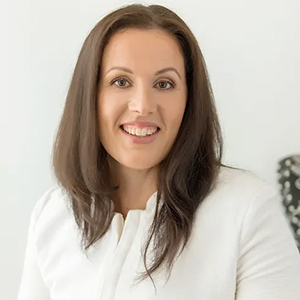
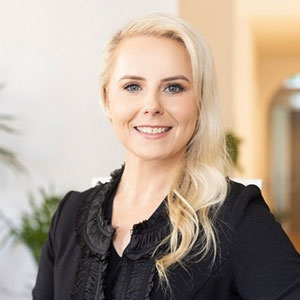


Latest
Results 0
HAVE QUESTIONS OR READY TO ENROL?
Book a call back with one of our Customer and Student Engagement Advisors

I felt engaged, and I loved what I was learning. It also gave me an edge. Now I know the why behind what I do.
Kiarah Grace Kelly, LLM Graduate - Family Law

All the lecturers are just so wonderful and so knowledgeable. They all understand that you're working as well as trying to study and are just so accommodating.
Jessica Popple, LLM Graduate - Family Law












